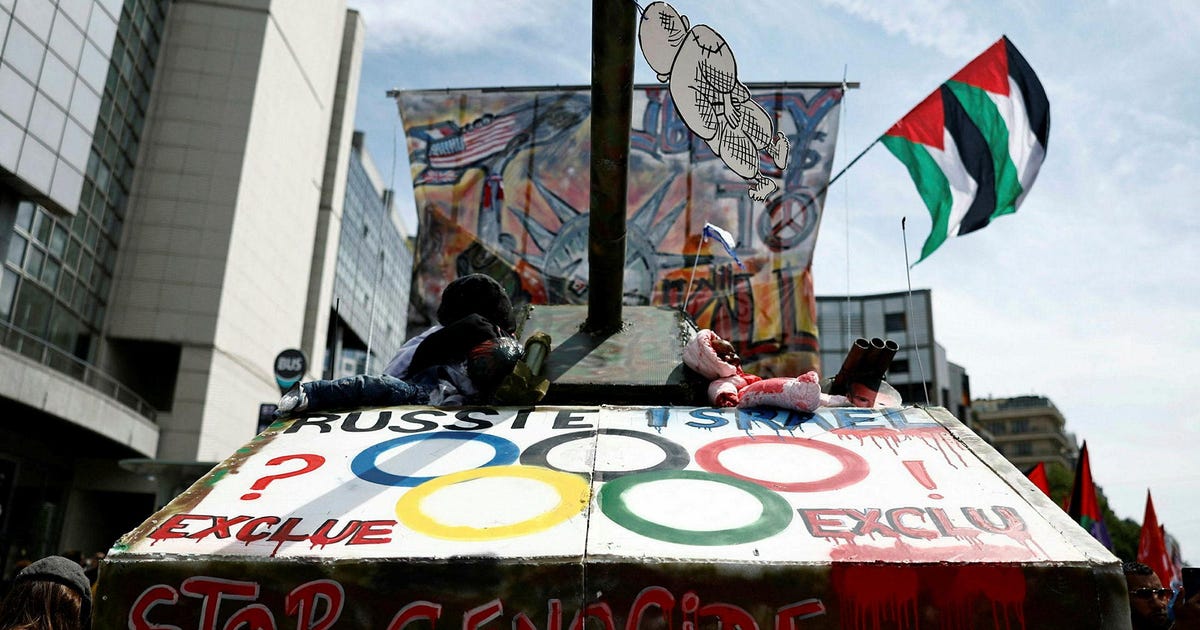From a hotel in Kyoto to a sandwich joint in Edinburgh, the world is becoming hostile toward Israelis who are learning that a vacation won’t shield them from the Gaza war.
During the nine months of war the Israeli tourist experience abroad has been marked by fears of antisemitism and efforts to avoid pro-Palestinian demonstrations.
According to reports by Israeli media and posts online, some of those worries have recently turned real for a number of Israeli tourists.Anecdotal incidents at touristic locations around the world are making it clear that even though there is no official policy of excluding Israelis, that is sometimes the situation on the ground.
An especially bumpy week began on June 17 at the Material Hotel in Kyoto, Japan, when an Israeli named Alex was informed that his reservation had been canceled due to the allegations of Israeli war crimes in Gaza. The Material told Alex that it was “not able to accept reservations from persons we believe might have ties to the Israeli army,” as reported by Israeli website Ynet.
The story made the rounds on social media, produced a stern protest letter from Israel’s ambassador in Tokyo, and led to a rebuke by the Kyoto municipality that the hotel had breached Japanese business law and must ensure that such a transgression won’t happen again.



There’s a few points of critique.
Religion is not the same as nationality, there isn’t a country that is dedicated to Christianity for example. (well, you have the Vatican but you get what I mean, it’s not a nation) It’s a different thing, so you can’t argue that Jews have no home since they too have a nationality from the country they were born in, like everyone does regardless of religion. I’m not arguing against Isreal existing to be clear, just that having a country for a religion isn’t some given right that only Jews don’t have. They mgiht be the only ones to have it depending on how interpret it.
There’s interpretations of zionism. At its core it’s the belief that the religion should also be a nation. But different sides form around the “how” part. While having a country to live in isn’t bad itself, if zionism means driving out others or straight up genocide of others, then it’s fair to bluntly oppose it.
Isreal exists now, but the continued killing and takeover of Palestine is horrible. And these days many bind zionism to the acts and opinions that flourish in Isreal that portray Palestinians as some evil that should be removed. It think opposing an nationalistic view like Zionism is a reasonable action when the country is engaging in invasion.
A point of critique to your critique. There are ethnic jews, cultural jews and religious jews. Most ethnic/cultural jews are not religious jews. See more in my other comment
Just because someone is born in a country doesn’t automatically make them “of that nation” identity-wise first and foremost. Take the romani peoples as another example, they often identify first and foremost as romani, rather than by the country of their birth.
That’s a good clarification, but I do not feel it changes much. A non-Isreal nationality now is still a thing they possess. No one chooses where they are born either way. Their ethnic identity is still there, but I do not think it gives them ground for land after they were dispersed originally. But regardless of that, they got Israel. It’s there now, and removing it also not an option.
It’s rather ironic, Jews are now killing off another ethnicity from the very same lands they themselves were driven out of. Sounds like a revenge story, but it’s just a cruel inversion of the same antisemitism that Jews have suffered at least twice now with their initial dispersion and during the second World War.